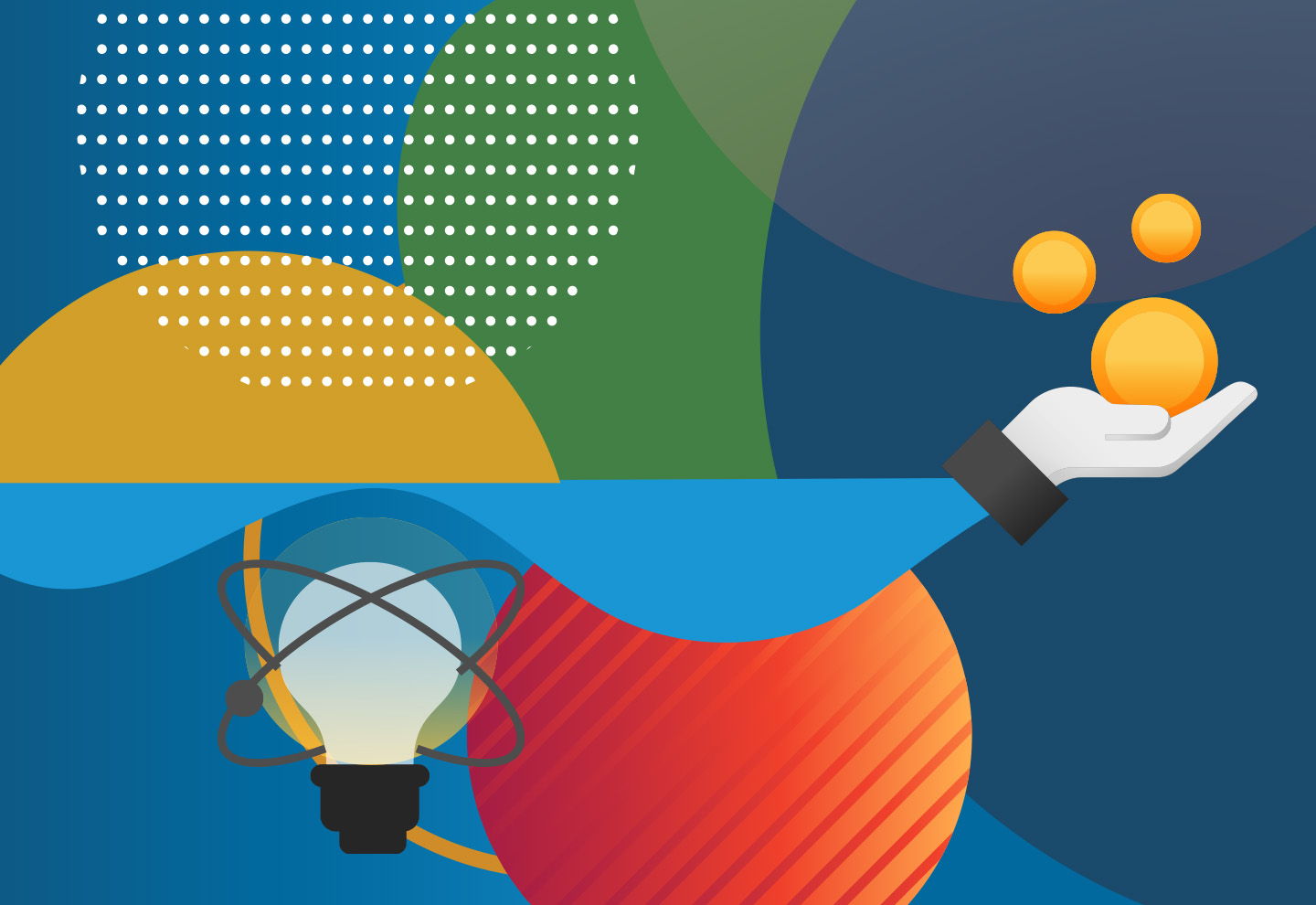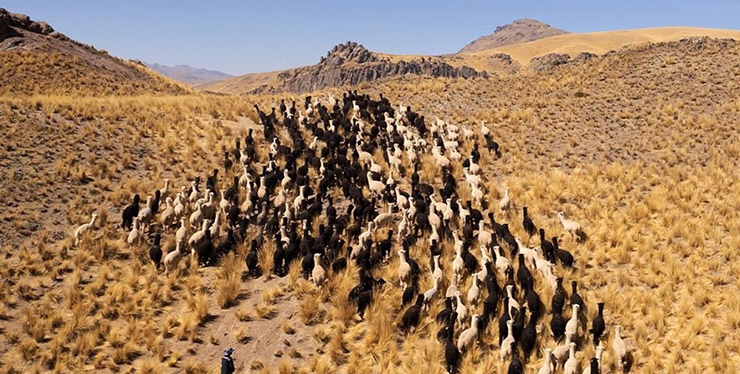Blended Finance to achieve SDG 4: Cocoa Industry Case

This webinar, led by Vanina Farber, elea Chair of Social Innovation and Fabio Segura, Co-CEO of the Jacobs Foundation, appeared live on Wednesday, 22nd April at 11am CEST.
IMD Professor Vanina Farber invites Fabio Segura, Co-CEO of the Jacobs Foundation to explore the linkages between providing quality education and creating “resilient value chains” in the cocoa industry. How can we move private capital with purpose, with intention to achieve SDG 4?
Sustainable Development Goal (SDG) number 4 is to “ensure inclusive and equitable quality education and promote lifelong learning opportunities for all.”
Vanina Farber introduces the concept of “materiality”, the notion that when the impact of sustainability interventions is aligned with financial return, performance improves. The problem with SDG 4 is that education is the least aligned (in comparison to other global challenges) with material issues. The data suggests that the core challenge to achieve SDG 4 is building the business case for quality of education investment.
“We have to build the bridge between the promise of education and what is material for businesses, be it a risk they’re facing, be it a cost they’re incurring or be it a better way of doing business,” says Fabio Segura, on how the Jacobs Foundation has addressed building the business case. But why is quality education important when there are other means to increase sustainability?
Segura also says that “Quality education matters for many reasons. The promise of education is that societies and individuals will be better off with it. There is nothing that has been more documented in terms of social change.”
There are a number of macro-economic benefits of quality education, such as a better income for individuals, holding better quality jobs over the longer term, and better income distribution for societies. Fabio Segura highlights the enormous challenge of translating these macro-economic benefits into getting a company with profit-seeking interests to invest in quality education.
He says that quality education is perceived to be a matter for the state. The benefits to firms of materializing are also too far off in the future. He says there’s also a “free-riders’ dilemma” meaning that the benefits of a single company’s investment are shared widely among their competitors.
Drawing from the Jacobs Foundation’s work in Côte d’Ivoire, where 40% of the world’s cocoa comes from, Fabio Segura explains the approach his organization has taken to tackling SDG 4. Cocoa production involves a range of actors including large multinationals to small-scale or independent farmers. To increase sustainability, “the dilemma that seems to be obvious in the eyes of policy and decision-makers is you either build infrastructure or you work on quality. We say you need to work on both otherwise your investment would generate negative return.”
Fabio Segura shares details of the Transforming Education in Cocoa Communities (TRECC) program which was initiated “to improve the living conditions of all children and youth in Côte d’Ivoire through quality education.” The TRECC approach encourages applying evidence-based innovations and models to policy and practice and “enables an ecosystem of stakeholders” to tackle quality education.
“We started asking cocoa industry executives why they would invest in quality education. First and foremost, everyone who was doing something on education was building infrastructure. Beyond infrastructure-building, there was very little being done. The main reasons for that were: regulatory pressure to curtail child labour, ethical concerns and preparing the next generation of cocoa farmers,” says Fabio Segura.
In 2015, The Jacobs Foundation created Transforming Education in Cocoa Communities (TRECC), a partnership to improve the living conditions of children and youth in Côte d’Ivoire through high-quality education. Over the last three years, the Ivorian government, 12 cocoa and chocolate companies, 20 civil society organizations and academic partners, and three foundations have joined this effort.
To date, TRECC’s partners and co-investors have jointly committed USD 85 million to pilot and scale evidence-based parenting/early childhood development (ECD), literacy/numeracy, and youth education programs, with a focus on rural areas. We aim for this investment to catalyse major system transformations in both education policy and the sustainability approach of the cocoa and chocolate industry. In April 2020, the Jacobs Foundation and the UBS Optimus Foundation as well as the Ivorian government and the cocoa and chocolate companies Barry Callebaut, Cargill, Chocolonely Foundation, ECOM, Ferrero, The Hershey Company, Mars Wrigley, Mondelēz International, Nestlé, Olam Cocoa and Touton pledged to jointly provide the necessary seed funding to launch two pooled funding facilities with a target capitalization of CHF 150 million. The facilities are CLEF (Child Learning and Education Facility) to promote effective learning; and ELAN (Early Learning and Nutrition) to promote early childhood development at scale in Côte d’Ivoire. To reach the target capitalization for the two facilities, additional stakeholders are invited to join the coalition.
Professor Farber believes that the experience of Jacobs Foundation and corporates in the cocoa industry could serve as a template for other sector-initiated approaches to address sustainability concerns and advance the 2030 SDG Agenda. Blended finance via multi-stakeholder partnerships such as TRECC provide one avenue for firms to de-risk sustainability initiatives in the short run while encouraging experimentation and innovation that will yield long-term benefits to the firm and society.
Find out more from Professor Farber about how going it alone in improving quality education doesn’t always optimize the performance of interventions.
To find out more about upcoming webinars from the elea Center for Social Innovation, please visit the Center’s page here.
Research Information & Knowledge Hub for additional information on IMD publications
There is wide agreement about the potential for hybridity – the combination of plural organizational forms – to address complex societal grand challenges. Unfortunately, advancements in this area have been unduly constrained by the fragmentation o...
Although corporate social responsibility (CSR) has received considerable attention in family firms, empirical findings on the CSR/family firm performance nexus are mixed and inconsistent. This meta-analytic review aims to clarify the mixed results...
We investigate family CEO birth order as an antecedent of family firms' CSR behavior. Despite psychology literature recognizing it as a key predictor of individual behavior, birth order has been largely neglected in management research. Drawing on...
in I by IMD
Research Information & Knowledge Hub for additional information on IMD publications
in Journal of Management Studies 27 May 2025, ePub before print, https://doi.org/10.1111/joms.13236
Research Information & Knowledge Hub for additional information on IMD publications
Research Information & Knowledge Hub for additional information on IMD publications
in Corporate Social Responsibility and Environmental Management March 2025, vol. 32, no. 2, pp. 1412-1443, https://doi.org/10.1002/csr.3004
Research Information & Knowledge Hub for additional information on IMD publications
in Strategic Entrepreneurship Journal 25 December 2024, ePub before print, https://doi.org/10.1002/sej.1530
Research Information & Knowledge Hub for additional information on IMD publications
in Binder, Julia Katharina (Ed.); Haanaes, Knut Bjarne (Ed.) / Leading the sustainable business transformation: A playbook from IMD, pp. 101-112 / Hoboken: Wiley, 2025
Research Information & Knowledge Hub for additional information on IMD publications
Research Information & Knowledge Hub for additional information on IMD publications
Case reference: IMD-7-2610 ©2024
Research Information & Knowledge Hub for additional information on IMD publications
Case reference: IMD-7-2609 ©2024
Research Information & Knowledge Hub for additional information on IMD publications
Research Information & Knowledge Hub for additional information on IMD publications





